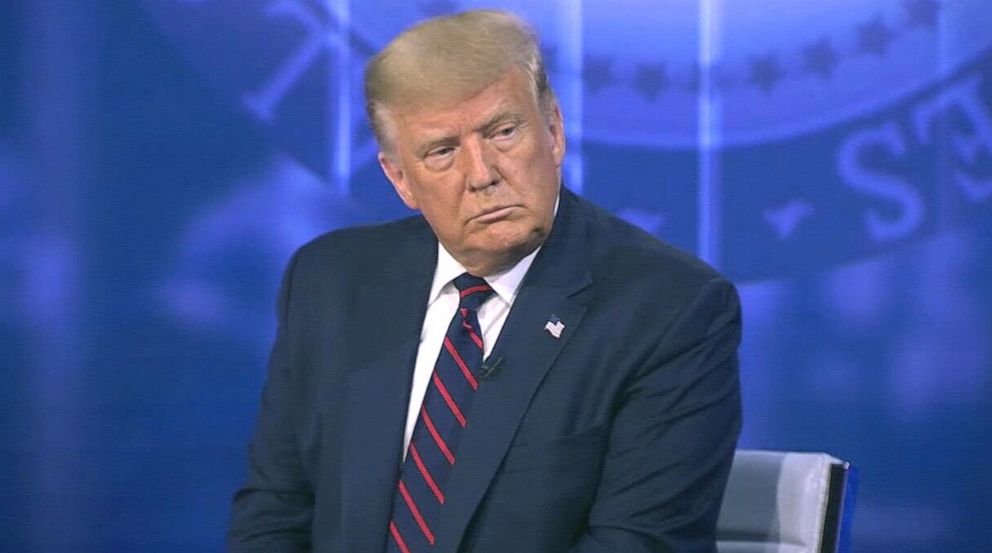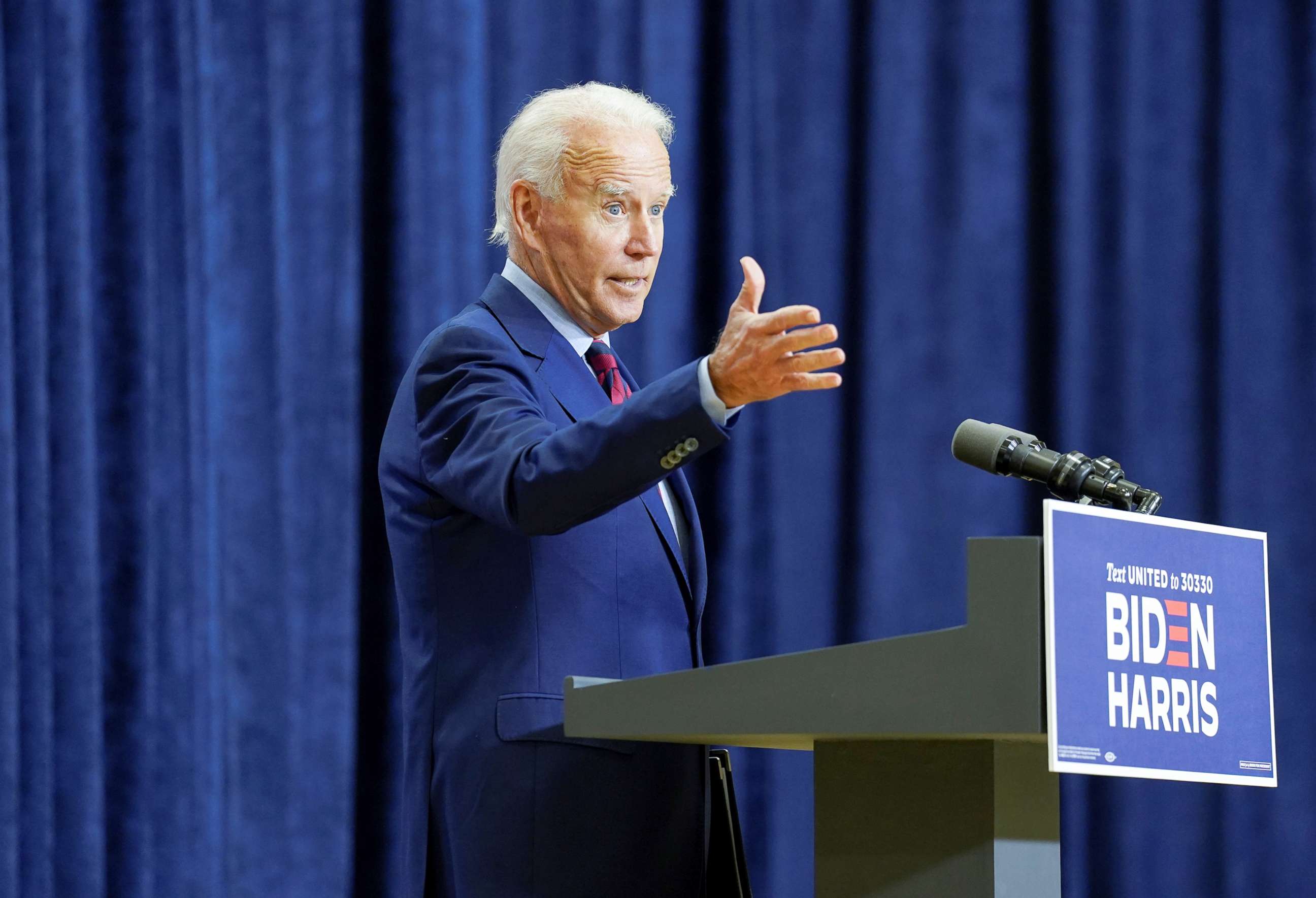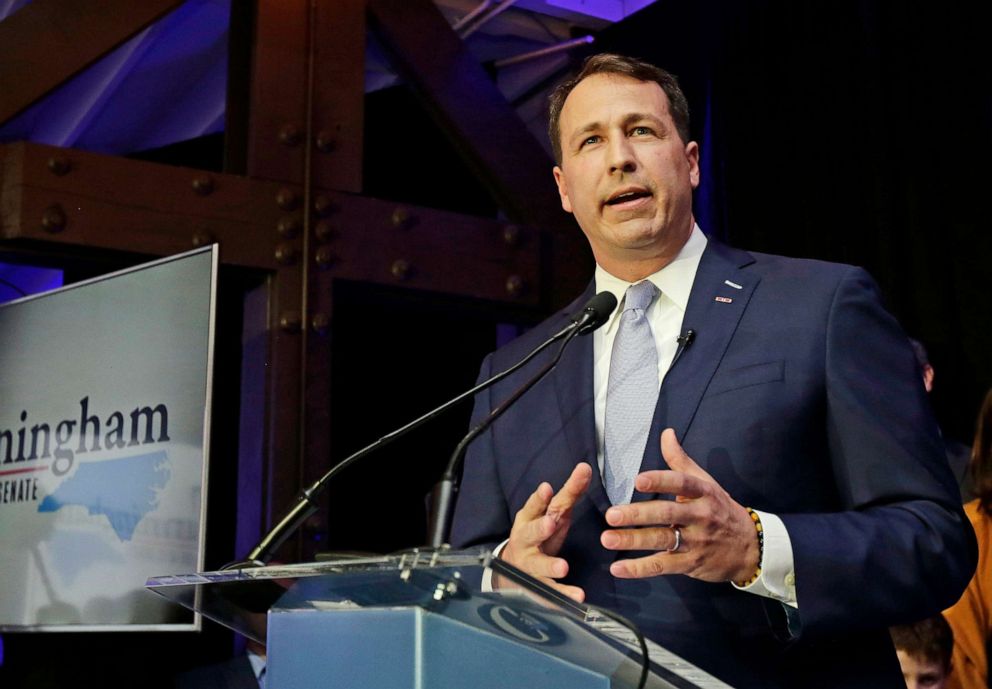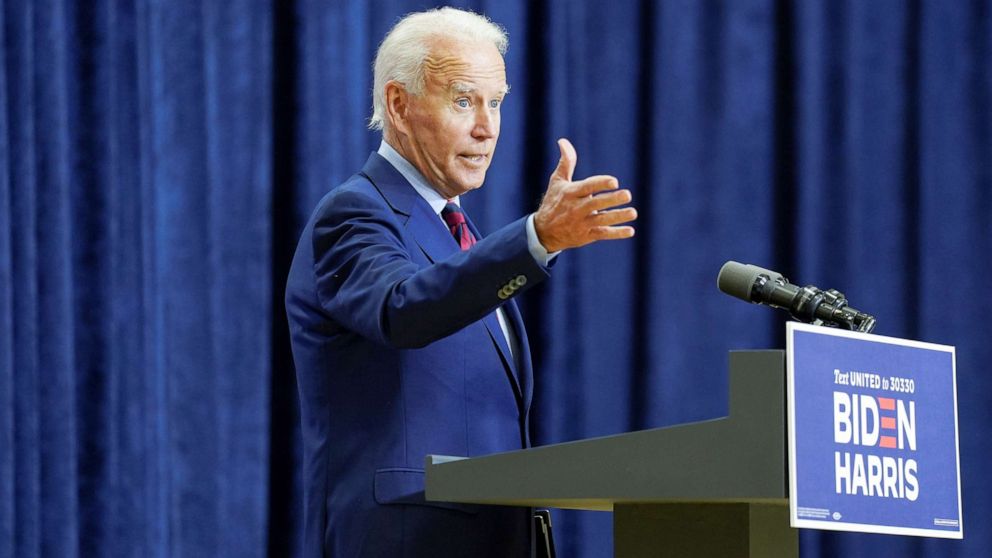Biden: 'I trust vaccines. I trust scientists. But I don't trust Donald Trump'
Former Vice President Joe Biden expressed his hope that the development and distribution of a vaccine for COVID-19 is free from political influence on Wednesday, asserting that while he places his trust in scientists, he cannot say the same for President Donald Trump.
"Let me be clear. I trust vaccines. I trust scientists. But I don't trust Donald Trump. And at this moment, the American people can't either," Biden said in a speech delivered at a theater in his hometown of Wilmington, Delaware, after receiving a briefing from experts on the development of a vaccine for COVID-19, a virus that has thus far claimed the lives of nearly 200,000 Americans.
The topic of vaccines has been increasingly thrust into the political realm in recent weeks as Trump continues to express hope that a vaccine will be available around Election Day.
"We'll have a vaccine in a matter of weeks, it could be four weeks, it could be eight weeks but we're going to have it," Trump said in an interview with Fox & Friends on Tuesday, after he dismissed the idea that his urgency to get a vaccine approved was motivated by politics.
While in Freeland, Michigan, a state that was once part of the Democrats' blue wall that fell to Trump in 2016, Trump promised his supporters that "before the end of the year, we will have a safe and effective vaccine" -- as his re-election prospects could hinge on the state.

Biden pushed back on the president's promises on a vaccine in his remarks Wednesday, comparing the talk to previous comments from Trump on testing and personal protective equipment for frontline medical workers.
"We can't allow politics to interfere with a vaccine in any way. Americans have had to endure President Trump's incompetence and dishonesty when it comes to testing and personal protective equipment.We can't afford to repeat those fiascos when it comes to a vaccine, when it occurs. The stakes are too high," Biden said.
"He still won't accept any responsibility. He still won't offer a plan. Last night he repeated what he said so many times before, that, even if he continues to offer only failing indifference, someday, the virus is going to go away by a miracle," Biden added.
At a press conference at the White House on Wednesday afternoon Trump accused Biden of spreading "anti-vaccine theories."
"I am calling on Biden to stop promoting his anti-vaccine theories because all they are doing is hurting the importance of what we are doing. And I know that if they were in this position, they would be saying how wonderful it is. They are recklessly endangering lives. You can't do that," Trump said.
Both Biden and his running mate, Sen. Kamala Harris, have publicly expressed their concern about political interference in the vaccine development process.
"First of all, I hope like hell that we have a vaccine. But discovering a safe vaccine is not enough if it gets distributed the same way Trump's testing and PPE have gotten distributed. The road from approval to injection is a long road, and we need a plan," Biden said at a fundraiser earlier this month.
"My guess is (Trump) is going to announce a vaccine, he's going to say it's going to be available around Election Day, he's going to hype it ... but look what every major scientist outside his political appointees have been saying about what he's been doing so far with regard to health," Biden added.

Harris has also said flatly that she would not take Trump's word on the safety and efficacy of a COVID-19 vaccine.
"I would not trust Donald Trump and it would have to be a credible source of information that talks about the efficacy and the reliability of whatever he's talking about. I will not take his word for it. He wants us to ingest bleach," she said during an interview with CNN earlier this month.
But when asked if sowing doubt in Trump's word would undercut overall trust in the vaccine and risk people's willingness to receive the vaccination, Biden argued that the damage to the president's credibility was already done.
"No, because they know (Trump) doesn't have any respect for scientists. He basically said it," Biden told ABC News senior congressional correspondent Mary Bruce at a press conference following his remarks.
"There has to be total transparency so scientists outside the government know exactly what is being approved. The context in which it's being approved and why it's being approved," Biden added.
When asked if he would approve of a vaccine cleared by scientists under Trump's watch, Biden told ABC News yes, but only if there are assurances the process was not politically motivated.
"Absolutely. Do it. Yes. If those three questions I laid out can be answered, yes, absolutely," Biden told Bruce, referring to a set of questions he laid out for the Trump administration on the vaccine development and distribution process.
The debate over a vaccine has also emerged as a flashpoint further down-ballot.
Some Republican incumbents facing tough re-elections are almost bullish about highlighting the administration's efforts on this front, seeing it as a bright spot in what has been a dark cloud over Trump's own reelection outlook. The president's approval on the virus steadily hovers in the low-to-mid 30s -- low marks that could potentially drag down other GOP campaigns without a course correction.
Trump's standing has not helped North Carolina's incumbent Republican Sen. Thom Tillis, who is currently locked in a tight race with his Democratic rival, Cal Cunningham, as most polls show him trailing the former state senator.
Earlier this week, at a debate between the two men, when asked to score Trump's COVID-19 response, Tillis focused on praising the commander-in-chief for imposing a travel ban before quickly putting some distance between him and the president's response by asking rhetorically, "What did I do to work on the pandemic?"
But on the federal government's efforts toward a vaccine, Tillis sought to underscore his confidence in the process, calling the FDA "the gold standard," adding, "I have no doubt in my mind that the vaccine would be safe."
Cunningham, who showed far more apprehension about the safety of a vaccine arriving before 2021, attempted to argue that a vaccine has been wielded as a political tool.
"I've got questions and I think we have seen entirely too many times and especially in recent years, politics intervening in what should be driven by health and science," the Army veteran said. "I would be hesitant, but I'm going to ask a lot of questions."
It was a moment made for an attack ad, and it was quickly turned into a digital ad by Tillis to cast Cunningham as politicizing the virus response. Republicans, by and large, were also quick to label the party "anti-vaxxers" - aligning them with a movement that is considered extreme.

Despite clarifying that he would "absolutely" take a vaccine if the FDA signed off on it and the process for approval was without politics, according to local affiliate WSOC, Cunningham's brief hesitation revealed the increasingly arduous tightrope candidates are walking in the age of Trump.
Other Democratic challengers in a similar position as Cunningham are avoiding the politics of it all, instead taking a more neutral approach.
Theresa Greenfield, a Democrat, competing against Sen. Joni Ernst, R-Iowa, told reporters on Tuesday she would "follow the advice of public health experts" when asked if she has confidence in a coronavirus vaccine this year.
"We are pretty good at it here in the United States at developing vaccines and we have treated many diseases in the past," she said, according to Iowa Starting Line, a local news outlet.
Mark Kelly, a former astronaut and Democratic Senate candidate in Arizona running against incumbent GOP Sen. Martha McSally, is also urging the process to be guided by science, his campaign saying he would "absolutely" take a COVID-19 vaccine when one is approved.
"Mark will absolutely take a vaccine when it's approved. As Mark has said from the beginning of this pandemic, these decisions should be made based on the science and the data and what is in the best interest of public health, not based on politics," Jacob Peters. a spokesman for Kelly's campaign told ABC News.
ABC News' Meg Cunningham contributed to this report.




